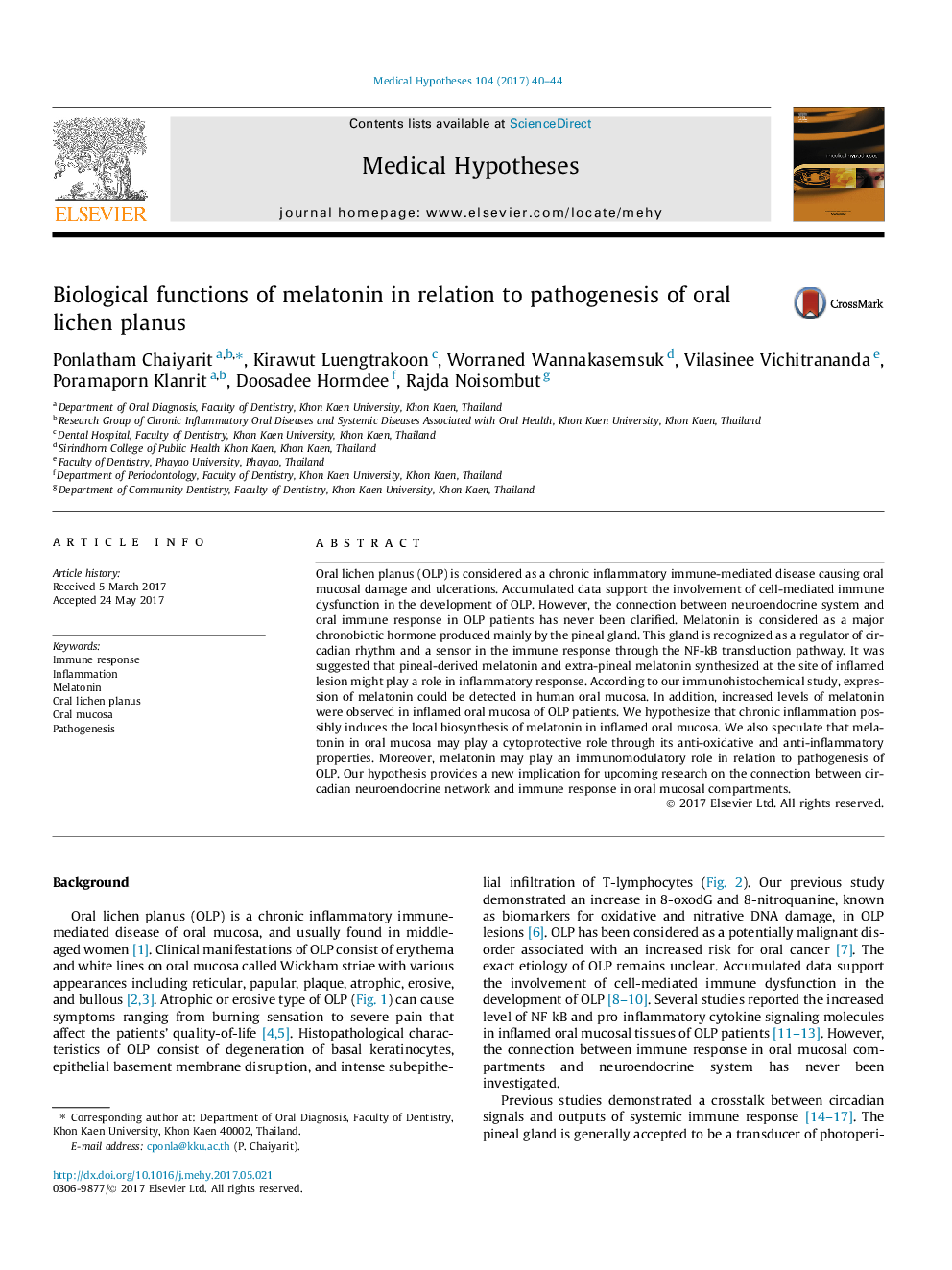| Article ID | Journal | Published Year | Pages | File Type |
|---|---|---|---|---|
| 5548526 | Medical Hypotheses | 2017 | 5 Pages |
Oral lichen planus (OLP) is considered as a chronic inflammatory immune-mediated disease causing oral mucosal damage and ulcerations. Accumulated data support the involvement of cell-mediated immune dysfunction in the development of OLP. However, the connection between neuroendocrine system and oral immune response in OLP patients has never been clarified. Melatonin is considered as a major chronobiotic hormone produced mainly by the pineal gland. This gland is recognized as a regulator of circadian rhythm and a sensor in the immune response through the NF-kB transduction pathway. It was suggested that pineal-derived melatonin and extra-pineal melatonin synthesized at the site of inflamed lesion might play a role in inflammatory response. According to our immunohistochemical study, expression of melatonin could be detected in human oral mucosa. In addition, increased levels of melatonin were observed in inflamed oral mucosa of OLP patients. We hypothesize that chronic inflammation possibly induces the local biosynthesis of melatonin in inflamed oral mucosa. We also speculate that melatonin in oral mucosa may play a cytoprotective role through its anti-oxidative and anti-inflammatory properties. Moreover, melatonin may play an immunomodulatory role in relation to pathogenesis of OLP. Our hypothesis provides a new implication for upcoming research on the connection between circadian neuroendocrine network and immune response in oral mucosal compartments.
